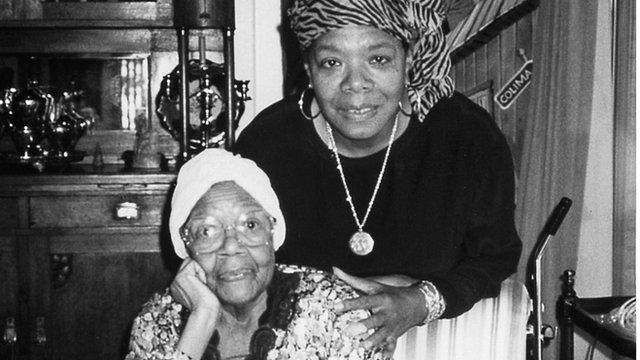Obituary: Maya Angelou
- Published
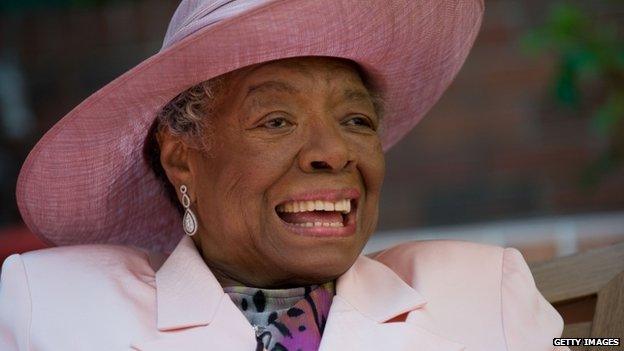
Maya Angelou documented the black experience in her work
Charismatic and passionate warm and wise, formidable without being forbidding, American author and poet Maya Angelou, who has died aged 86, was a role model and an activist who recorded and celebrated the experience of being black in the United States.
Not everyone appreciated her lush prose style, there were raised eyebrows at the inconsistencies in her different accounts of her life, and some conservative Americans protested at what they saw as her books' frank treatment of violence and sexuality.
But few could quarrel with the breadth of her erudition and her achievement - she was often called a Renaissance woman - or the respect in which she was held.
She was born Marguerite Johnson in St Louis, Missouri on 4 April 1928, the daughter of a nurse and nightclub habituee, Vivian Baxter Johnson, and a doorman and navy cook, Bailey Johnson.
Her parents soon divorced and her mother, unable to cope with two small children, sent Maya and her brother Bailey Junior to live with their grandmother, who kept a general store in the black section of Stamps, Arkansas.
The name Maya came from her brother's childish way of saying "My-a sister".
Personal trauma
Angelou spent much of the next 10 years growing up in one of America's poorest regions, experiencing first-hand the racial segregation and prejudice of the Deep South: an experience brought vividly to life in her first volume of autobiography, I Know Why the Caged Bird Sings, published in 1970.
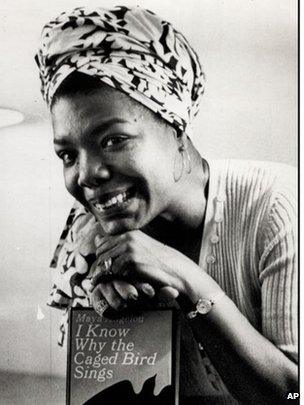
Maya Angelou's first book I Know Why the Caged Bird Sings was a bestseller
At the age of seven, on a visit to St Louis, she was raped by her mother's boyfriend. When she told her family what had happened the man was arrested, tried, released from jail and shortly afterwards murdered - probably by her uncles, her mother's brothers.
For the next five years she didn't speak.
"I was a volunteer mute. I had voice but I refused to use it," she later recalled.
"When I heard about his murder, I thought my voice had killed a man and so it wasn't safe to speak.
"After a while, I no longer knew why I didn't speak, I simply didn't speak."
Extraordinary career
But, though mute, she read voraciously and was ultimately persuaded to speak again by a friend of her grandmother who recognised her passion for poetry and told her that, to be experienced fully, it had to be spoken aloud.
Angelou later recalled her saying: "You will never love poetry until you actually feel it come across your tongue, through your teeth, over your lips."
Later she went to live with her mother in San Francisco (and renewed her relationship with her father, also living in California).
At the age of 15 she badgered one of San Francisco's streetcar companies into making her the city's first female cable car conductor.
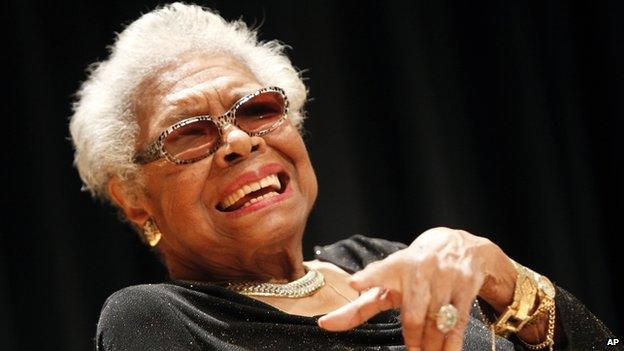
Maya Angelou met Malcolm X and Martin Luther King
At the age of 16 she gave birth to her only child, a son, after a loveless one-night stand undertaken largely in a spirit of inquiry.
Before long she had embarked on an extraordinary career that included stints as a dancer, waitress, prostitute and pimp. She became an actress and singer, recorded an album of calypso songs, appeared on Broadway and travelled to Europe in a touring production of Porgy and Bess.
Along the way she acquired two or possibly three husbands (she was always a little vague about the facts), and took her surname from the first, an aspiring Greek musician called Enistasios Angelos.
In 1961 she worked for a time as northern co-ordinator for Martin Luther King's Southern Christian Leadership Conference, then followed a South African freedom fighter, Vusumzi Make, to Cairo, where she became a journalist.
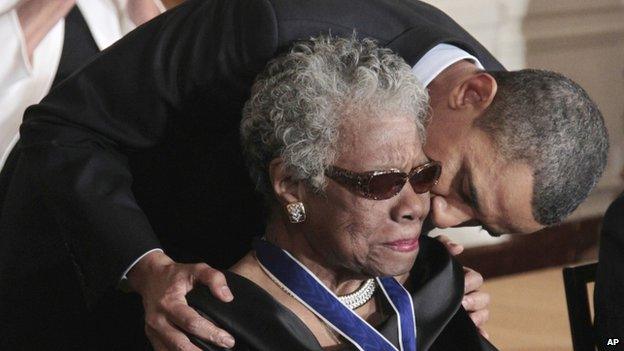
Maya Angelou received the Medal of Freedom from President Obama in 2010
Later she took her son to Ghana, where she met the black activist Malcolm X. She returned to the United States in 1965 to work with him, but he was killed shortly afterwards. A few years later Martin Luther King too was assassinated.
"I along with a number of young people at the time had been disenchanted, and felt angry and protested inequality," she later told the BBC when she recalled her time with Martin Luther King and Malcolm X.
"But until the Civil Rights movement came along there was no clear way to oppose the inequities.
"I was very sure that between the two men, and the women, between the followers of both groups, we would certainly have a land where all the people, all the faith groups, all the Adams and Eves would have a chance to stand for a while in the sun. When those two men were killed we all stumbled about like blinded moles. It was really disastrous for black Americans."
Academic career
It was around this time that her friend, the writer James Baldwin, helped persuade her to write her first volume of autobiography. It was a best seller, and six more volumes followed over the decades.
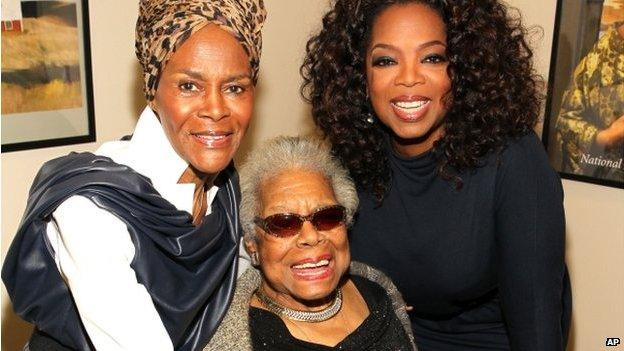
Maya Angelou celebrated the unveiling of her portrait at the Smithsonian"s National Portrait Gallery earlier this year along with Cicely Tyson (l) and Oprah Winfrey
She began publishing poetry as well, wrote a feature film screenplay, wrote and presented a 10-part TV series about the blues and black Americans' African heritage, and played Kunte Kinte's African grandmother in the ground-breaking TV series Roots, about the black experience of slavery.
In the 1980s she added another string to her bow, becoming an academic and professor of American studies at Wake Forest University in North Carolina - a prestigious white university. In the kitchen of her home there (one of several she maintained, including one in New York's Harlem) she practised another skill for which she was renowned, cookery.
By now she was perhaps the world's best-known black female writer and one of America's best-known black women.
Bill Clinton acknowledged her status when he asked her to read a poem at his inauguration in 1993. Called On The Pulse of the Morning, it included the lines: "History, despite its wrenching pain, cannot be unlived/But if faced with courage need not be lived again."
In 2010, Barack Obama awarded her the Presidential Medal of Freedom.
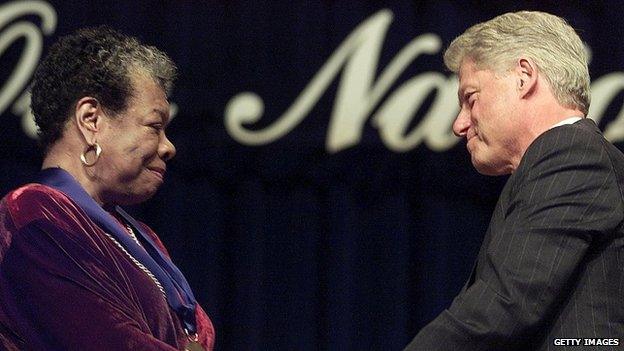
Maya Angelou met many world leaders past and present including Bill Clinton
Shortly afterwards she recalled that Martin Luther King, in the 1960s, had predicted that America would have a black president in 40 years: she hadn't believed it possible and had supported Hillary Clinton's bid for the Democratic nomination (the two were long-standing friends).
Throughout her life she was a superb phrase-maker, on the page and in the flesh. She had the knack of speaking - in the Southern accent she retained all her life and with a characteristic slow, deliberate delivery - in complete and grammatically perfect sentences.
She was a commanding figure, standing six feet tall, and immensely striking.
Of all her achievements, perhaps the most impressive was her own character. Life, she believed, was to be lived. "The excitement is not just to survive," she once said, "but to thrive, and to thrive with some passion, some compassion, some humour and some style."
- Published28 May 2014
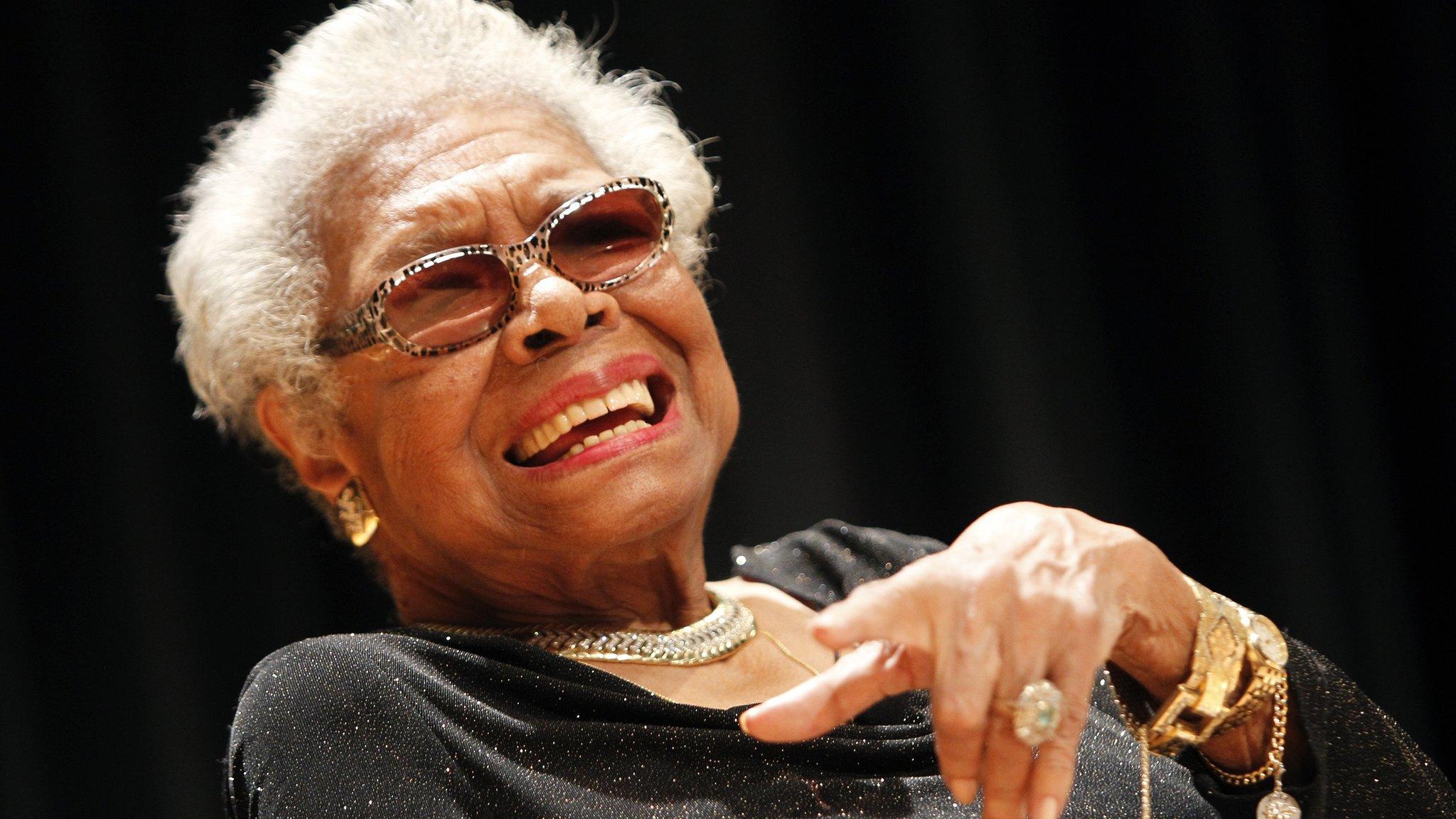
- Published28 May 2014
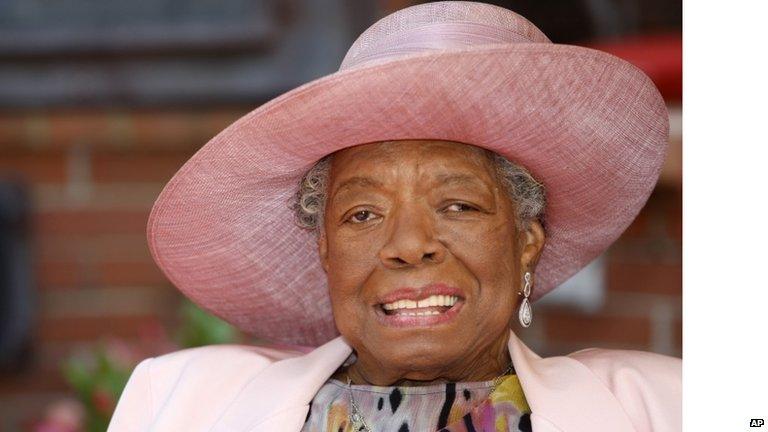
- Published28 May 2014
- Published28 May 2014
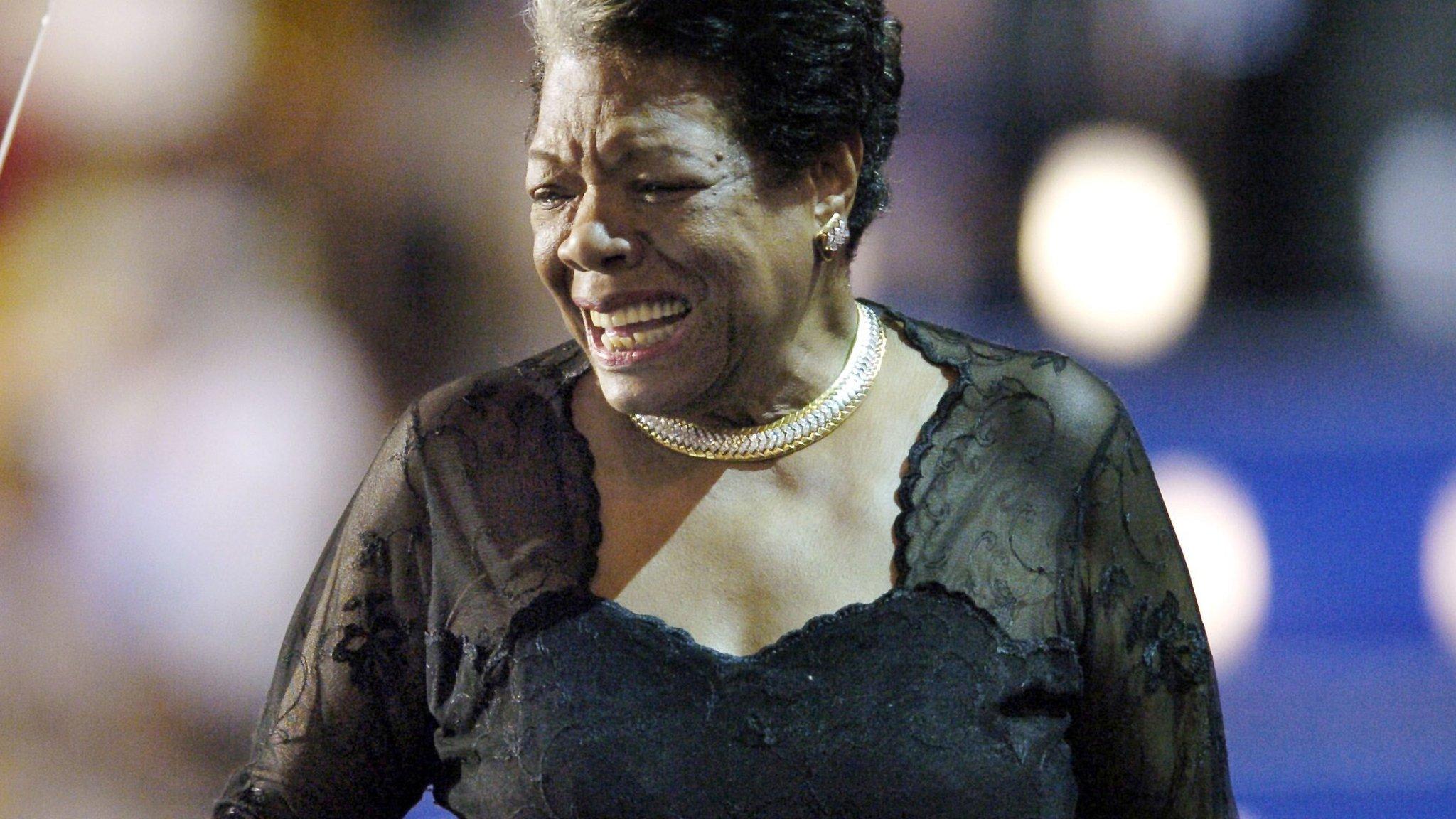
- Published4 April 2013
